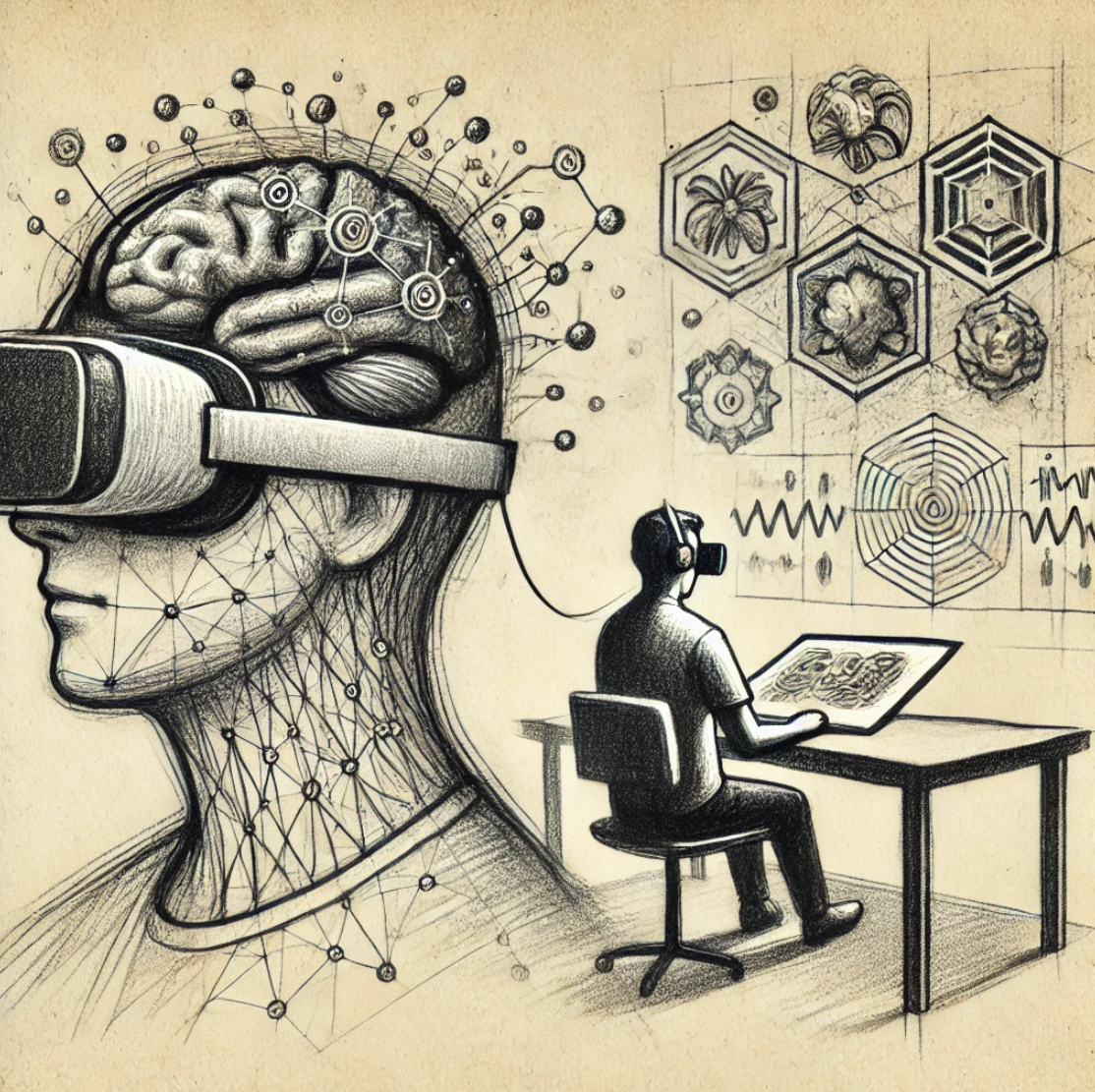Virtual Reality (VR) is a powerful tool in cognitive neuroscience that allows researchers to study the brain in realistic yet controlled environments. Using VR headsets, participants can immerse themselves in simulated worlds where scientists can track their reactions, behaviors, and brain activity. This technique helps study memory, perception, decision-making, and even mental health conditions by recreating scenarios that would be difficult or impossible to test in real life. By analyzing how the brain responds in these virtual settings, researchers gain insights into how we think, learn, and interact with the world.
